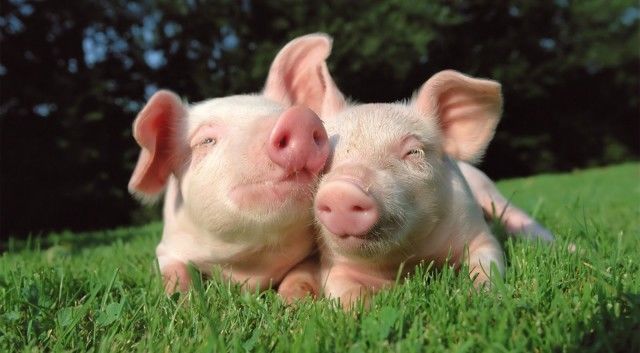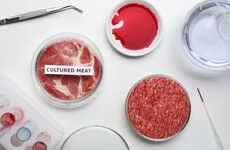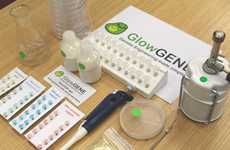
These Genetically-Altered Pigs Could Provide Humans with Organs Doners
Cadhla Gray — October 15, 2015 — Tech
References: zmescience & extremetech
Scientists have now genetically-altered pigs in the most number of ways to date, bringing us closer to the possibility of successful xenotransplantation -- the process of transplanting animal organs into humans.
The total number of modified genes in these pigs is 60, making their organs more like humans' so that the body's immune system is less likely to reject. While many would assume a member of the ape family may be more closely linked, a pig's organs are actually the most similar in size and system to a human's.
While a controversial issue, largely with vegans and vegetarians, this is a vital step forward for science. While alternative stem cell research has its own set of issues as well, both of these routes will be studied as more humans are put on wait lists for vital organs.
The total number of modified genes in these pigs is 60, making their organs more like humans' so that the body's immune system is less likely to reject. While many would assume a member of the ape family may be more closely linked, a pig's organs are actually the most similar in size and system to a human's.
While a controversial issue, largely with vegans and vegetarians, this is a vital step forward for science. While alternative stem cell research has its own set of issues as well, both of these routes will be studied as more humans are put on wait lists for vital organs.
Trend Themes
1. Genetically-altered Animal Organs - The advancements in genetic modification of animal organs may pave the way for successful xenotransplantation, creating new opportunities for organ transplantation and potentially disrupting the medical industry.
2. Stem Cell Research - As an alternative to genetically-altered animal organs, stem cell research may be studied further as a solution to the organ donation shortage, presenting opportunities for disruptive innovation in the medical industry.
3. Ethical Considerations for Animal Testing - As the discussion around animal testing and genetic modification continues, there may be opportunities for disruptive innovation in the ethical considerations and regulations surrounding animal testing and experimentation.
Industry Implications
1. Medical - The developments in genetically-altered animal organs and stem cell research present opportunities for disruptive innovation in the medical industry, potentially revolutionizing the field of organ transplantation.
2. Agriculture - The genetic modification of animals presents opportunities for disruptive innovation in the agriculture industry, potentially leading to more efficient and sustainable practices.
3. Pharmaceutical - As the discussion around ethical considerations for animal testing continues, there may be opportunities for disruptive innovation in the pharmaceutical industry, specifically in the development and testing of new medications and treatments.
1.8
Score
Popularity
Activity
Freshness























